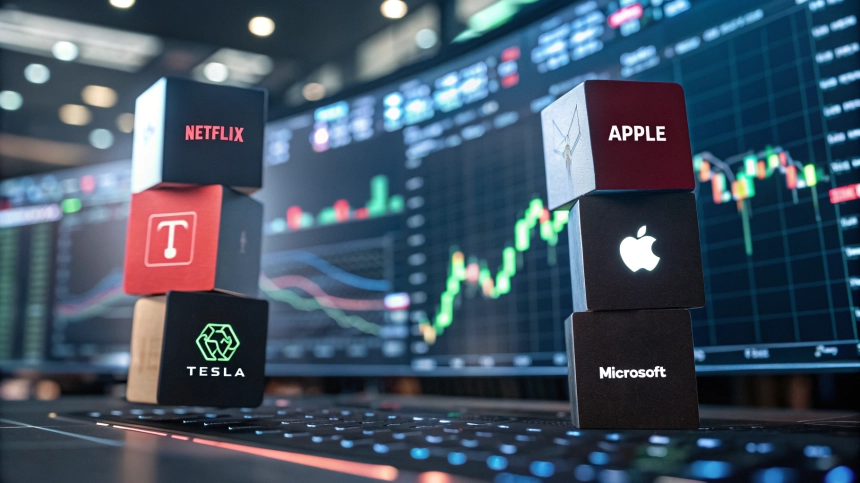Robinhood EU has taken a bold step to integrate traditional finance (TradFi) with blockchain by launching tokenized unlisted stocks from major companies like OpenAI and SpaceX.
Beyond the high interest in the crypto industry, this development has sparked a debate on whether these new tokenized stocks will invigorate or deplete the altcoin market.
Experts Discuss the Impact of Stock Tokens on the Altcoin Market
BeInCrypto reported that Robinhood announced its blockchain plan. Tokenized US stocks and ETFs will be traded 24/5 through Arbitrum with dividend support in Europe.
According to blockchain data, the wallet connected to Robinhood (0xcB…f556) has already issued 2,309 OpenAI stock tokens on Arbitrum (ARB). The same deployer address has created or tested 213 tokens on the network, indicating expansion plans.
Robinhood Deployer: 0xcB…f556 has minted 2,309 OpenAI stock tokens on Arbitrum. Robinhood Deployer: 0xcB…f556 has deployed a total of 213 tokens on Arbitrum or is undergoing related testing. Previously, Robinhood EU announced the launch of the world's first batch of private…
— Wu Blockchain (@WuBlockchain) July 2, 2025
As this milestone gains attention, experts have mixed opinions about its impact on cryptocurrencies, especially altcoins. Some believe this excitement is misplaced.
Crypto developer Hitesh Malviya is skeptical that tokenized stocks will inject capital into altcoins. According to his view, stock traders have outperformed altcoins over the past 30 months.
"Tokenized stocks are not an upward catalyst for altcoins," he said.
Accordingly, he does not expect the trend to reverse just because stocks are moving on-chain.
Instead, he anticipates a shift in trading volume towards tokenized crypto stocks and Protocol Controlled Value (PCV) assets, especially outside the US.
The market is already showing such changes, with Camino Finance announcing the integration of tokenized stocks in the Solana ecosystem through xStocks.
"Through Camino Lend integration, users can use xStocks as collateral through the new xStocks market and take loans against the following assets: AAPLx NVDAx GOOGLx METAx TSLAx SPYx QQQx," Camino explained.
Meanwhile, the controversy extends beyond performance to structure. Carlos Domingo, CEO of Securitize, is one of the biggest critics of Robinhood's tokenization model.
He warns that the current "wrapper" method, where different platforms issue blockchain versions of the same stock, does not solve real problems. Instead, it exacerbates liquidity fragmentation.
Domingo points out the irony in Robinhood's message. He cites Johan Kerbrat, Robinhood's crypto head, who reportedly dislikes Tesla tokens spread across multiple platforms.
"Isn't this exactly what Robinhood is doing? Creating their own version of a Tesla token (which, incidentally, is not even a stock-representing token)?? I can't understand the statement from their crypto head. It's completely contradictory to what they just announced," Domingo challenged.
Some Prioritize Utility Over Standardization
However, others are more pragmatic. Trader and crypto personality S4mmy sees no issue. But his perspective depends on whether the tokens actually grant holders ownership of the underlying asset and its cash flows. In other words, utility and legal rights are more important than standardization.
This perspective came in response to investor Mike Dudas, who highlighted the complexity of a multi-token stock future.
Dudas, in a joking post, questioned whether users would eventually have to choose between different tickers for the same company.
the future of equities is absolutely 1,000 different tokenization standards, no question
— Mike Dudas (@mdudas) June 30, 2025
do you own rTSLA, cTSLA, sTSLA, xyzTSLA, ethTSLA, solTSLA or hyperTSLA?
Adding to the skepticism, crypto investor Beanie claims that stock tokenization brings a downturn to cryptocurrencies. His key argument is that capital is finite.
As high-performance tech stocks become more easily tradable on-chain, they could draw liquidity away from underperforming or highly speculative altcoins, some of which still trade with billions in market cap but provide almost no real-world utility.
Whether the current format is flawed or not, tokenized stocks seem to be a growing trend. Solana-based Camino Finance has added support for tokenized stocks, allowing users to exchange cryptocurrencies and stocks and use them as collateral in lending markets.
This move positions Camino alongside Robinhood in targeting retail and DeFi users who want exposure to traditional assets without leaving the blockchain.
Robinhood's stock token version may not be perfect. But it has accelerated a new experimental phase at the intersection of stocks and DeFi.
Whether this will ultimately support or divert attention from cryptocurrency may depend more on implementation than ideology, and ultimately on who secures liquidity first.




